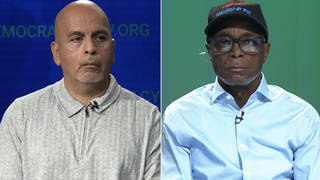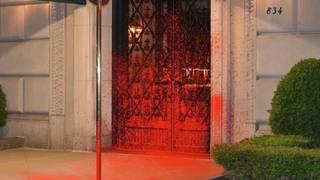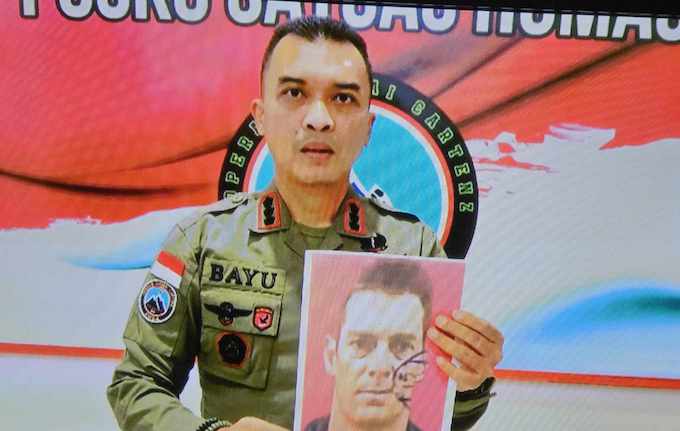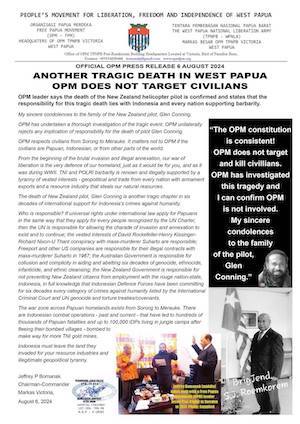Lawyer and social justice campaigner Peter Stefanovic has just published one video that won’t be making it into the hallowed early hour TV showings of Good Morning Britain (GMB). That’s because, the days of Boris Johnson and his merry band of serial lying hard-right Tory successors have lost the keys to number 10. In their place? Labour continuing their work. And Stefanovic exposed one new-blue establishment stooge in particular. None other than GMB Ed Balls-up’s dear Westminster wife – home secretary Yvette Cooper.
Peter Stefanovic pulling no punches on anti-protest law appeal
It was for her shameless decision to pursue the previous Tory government’s appeal over its unlawful anti-protest laws. Crucially, this concerned former home secretary Suella Braverman’s authoritarian overreach of secondary legislation to ram through laws parliament had already rejected.
Here’s the video where Peter Stefanovic rips into Labour:
IMPORTANT & SHOCKING UPDATE
The new @labour Government has confirmed it will be pursuing an appeal against @libertyhq’s High Court victory – its actually supporting the former Government’s power grab that set a dangerous precedent that Governments can do whatever they want pic.twitter.com/gPohTvZfWJ
— Peter Stefanovic (@PeterStefanovi2) August 29, 2024
In particular, as Stefanovic pointed out, Braverman used these so-called Henry VIII powers to establish an especially authoritarian crack-down on the right to protest. Specifically, she handed police greater power to arrest protesters. She did so by redefining the meaning of “serious disruption” to encompass anything they deemed as causing ‘more than minor’ impact.
Previously, the House of Lords had shot down this particular element lowering the threshold of what would constitute a “serious disruption” by protesters. However, Braverman didn’t let this lie. Instead, she pushed this through via the back door using secondary legislation. This doesn’t require parliamentary scrutiny – so MPs didn’t get to vote on this.
Already, as Stefanovic and others also noted, police have arrested hundreds of protesters using these draconian powers. This includes climate activist Greta Thunberg and many other climate and Palestine activists:
And they are out already doing it …. arresting activists who expose the truth about what this Israeli Govt and Military are doing in Gaza and West Bank.
— Linda Hurrell (@LindaHurrell) August 29, 2024
Enter human rights group Liberty. In May 2024, the group won a case challenging the government over this. Significantly, the High Court ruled that the government had acted unlawfully in imposing these powers and ignoring the will of parliament.
Labour getting in on the Tory power-grab
Predictably however, Braverman wasn’t giving up her dictatorial power-trip. Before Sunak announced the election, she launched an appeal against the High Court’s ruling.
As Peter Stefanovic said, the new Labour government had a choice between continuing the appeal:
in support of this Tory power-grab which would set an extremely dangerous precedent, or defend democracy and the rule of law by dropping the appeal and scrapping these unlawful powers.
Of course, it chose the former. Now, the Labour government is set to waste vast sums of taxpayers money doing the same.
Once again, Stefanovic dragged the government on this. First, he highlighted how Labour had opposed the Tories’ bill in parliament. Then, the clincher – he exposed the staggering scale of the party’s hypocrisy from one key recent speech.
On the one hand, there was Labour’s attorney general Richard Hermer pronouncing in July that:
The prime minister and the lord chancellor have both made clear that the promotion and the protection of the rule of law will underpin our approach to legislation and policy.
Crucially, he declared that this meant:
guarding against the abuse of the proper role of secondary legislation
Now, here’s Cooper now doing the direct opposite of this. The decision to continue the appeal is guarding something alright, and that’s the establishment against the public’s democratic right to protest. In other words, the slimy home sec has done what the Starmerite cabinet does best – another whiplash-inducing U-turn.
And speaking of staggering levels of hypocrisy, here’s the Home Office’s response to media outlet Hyphen quizzing the government on the decision:
UPDATE: Home Office came back to us after deadline with a quote that was as meaningless as it was late.
“The right to protest is fundamental to our democracy, and all public order legislation must balance this right. However, we disagree with the court’s ruling in this case.” https://t.co/0goh7U8gSD
— Ramzy Alwakeel (@journoramzy) August 29, 2024
Labour’s opposition was always performative
Of course, it’s hardly a surprise. Labour has consistently worn its business-buddy-buddy badge where all corporations can see it. From welcoming billionaire backers with open arms, to soliciting the support of financial titans in the City, since Starmer took to the helm, the party has been a teeming cesspit of corporate capitalist sell-outs.
The Canary has consistently highlighted the party’s corporate and lobbyist connections. We’ve also underscored particularly its polluting industries ties. So, Braverman’s unlawful police powers enable it to protect these interests – whether that be climate-wrecking fossil fuel corporations, or companies supplying arms to Israel:
Because the legislation was designed to allow unchecked UK arms manufacturing to continue to supply genocidal regimes and fossil polluters to continue to churn out fossil fuel pollution, which @UKLabour HQ views as vital for growth and their own pockets. https://t.co/f8WFtkjDel
— Ellie Merton
#longcovid (@ellie_merton) August 29, 2024
What’s more, the writing was likely already on the wall, as one poster on X pointed out:
Labour abstaining on the fatal motion against this legislation was foreshadowing. https://t.co/zTCfS7TS23
— frank. (@McDivergence) August 29, 2024
Naturally, others – including the Canary – had also seen it coming a mile away. In October 2023, Steve Topple previously also expressed how:
Labour’s outrage is performative – given it failed to support Green Party peer Jenny Jones’s fatal motion in the Lords which would have stopped Braverman.
Then, at the end of July, fellow Canary journalist Samantha Asumadu wrote:
However, the opposition day votes for a repeal of the Public Order Act 2023 on 16 May 2023 may be an indication of whether Sir Keir Starmer’s Labour Party is likely to attempt to repeal it or not now they are in government. 57 Ayes and 278 Noes.
The Act was not mentioned in the party’s manifesto. However, Labour has said that its mission in government is to “take back our streets”. Take back the streets from whom remains to be seen.
In other words, this was all entirely predictable. A Labour Party cosying up to the corporate capitalist establishment would do one thing when it got into power, and one thing only. That is, shield CEOs and its big money-spinner revolving door.
Any lingering notion the Labour government will bring about a real, meaningful break from the Tories’ authoritarian power-grab is as limp as the last vestiges of Starmer’s election promises gone the way of the U-turn. And Cooper proved beyond doubt that the Labour right is full of vacuous charlatans. But then, thanks to the home sec’s hubby regularly Ball-sing stuff up on morning-time TV, we already knew that.
Welcome to “changed” Britain – new new Labour government edition – where supposed centrist sensible politicians are the new cheerleaders of the death of democracy and the descent into authoritarian fascism. Thanks to Peter Stefanovic – at least we know of part of the threat, now.
Feature image via X – Peter Stefanovic/Youtube – Sky News/the Times and Sunday Times/the Canary
This post was originally published on Canary.






 #BlackLivesMatter
#BlackLivesMatter
 (@SAandPalestine)
(@SAandPalestine) 

 (@CookeLeighton)
(@CookeLeighton)  ’s every whim & demand in support its murder0us, genoc1dal rampage – there’s none now.
’s every whim & demand in support its murder0us, genoc1dal rampage – there’s none now. Subcontractors for
Subcontractors for 





 BREAKING: Courts will be open and sitting for 24 hours a day under government plans to crack down on rioters
BREAKING: Courts will be open and sitting for 24 hours a day under government plans to crack down on rioters